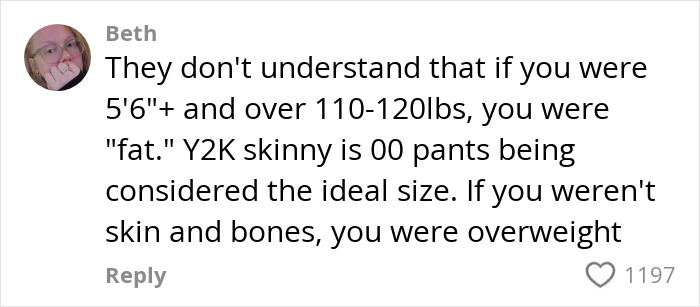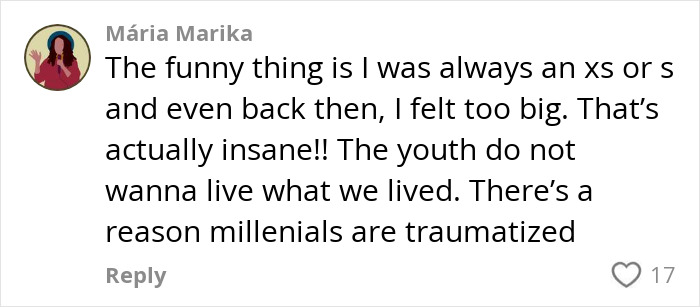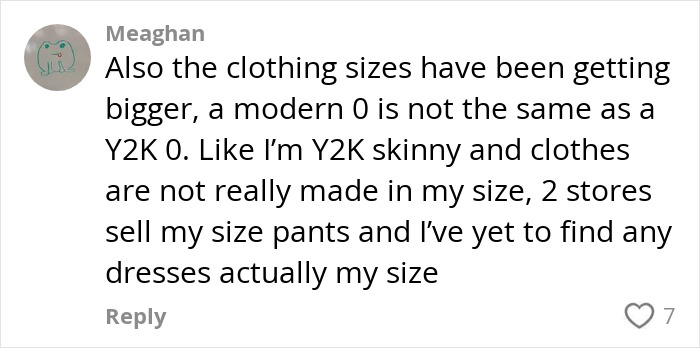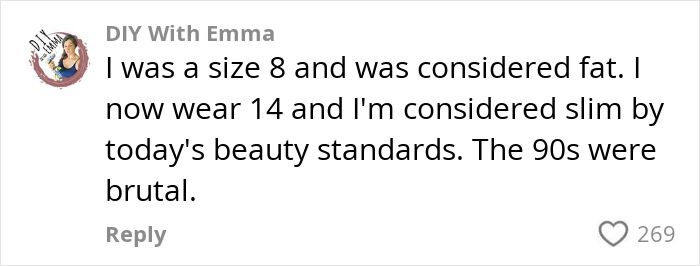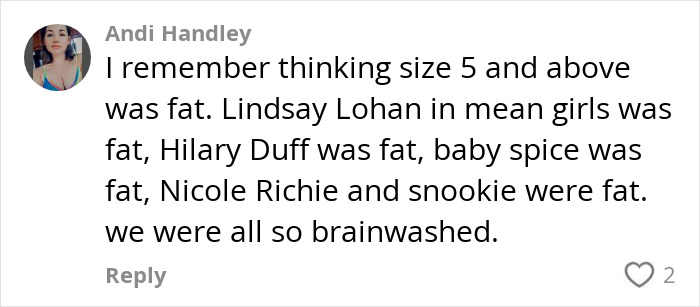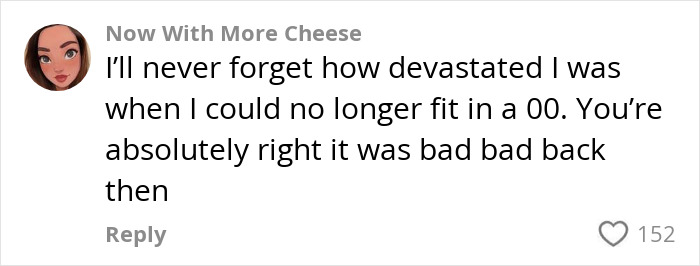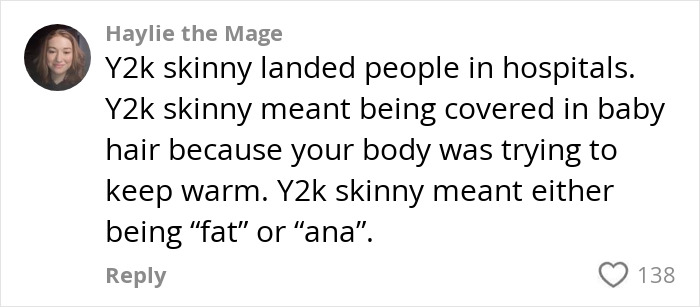Millennials are offering some heartfelt advice to the younger generations: “Don’t strive to be thin! We’ve tried it, and it’s not healthy!”
With more and more people on social media announcing themselves to be “Y2K thin” or “2,000’s skinny”, influencer and former model Kaila Uli posted a message urging people not to embrace the trend.
Her message was picked up and amplified by all sorts of Millennials offering up nuggets of wisdom.
“Mama, you would not survive”: Millennial influencer tells younger people not to embrace “Y2K skinny” trend
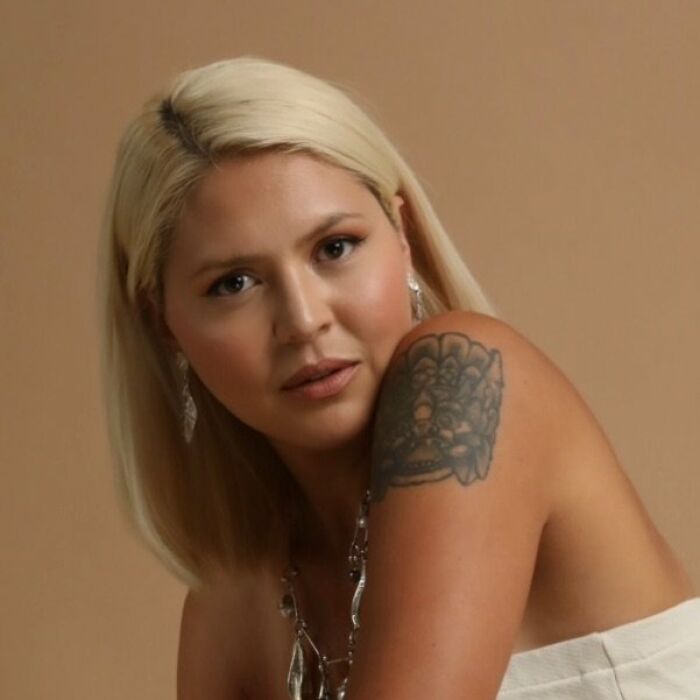
Kaila Uli, age of 33, wants the youngin’s out there to know: You don’t know.
In an Instagram post that’s now gotten more than 187,000 likes, Uli explains that, people may think they’re thin like when “Kate Moss heroin chic” was a thing, but actually, they are not.
She says that during the early 2,000’s people were calling JLo fat, and Drew Barrymore chunky, whereas by today’s standards, both would have been called skinny.
“And the reason you can call yourself skinny is because of all of the work that’s been done to get us there,” Uli says.
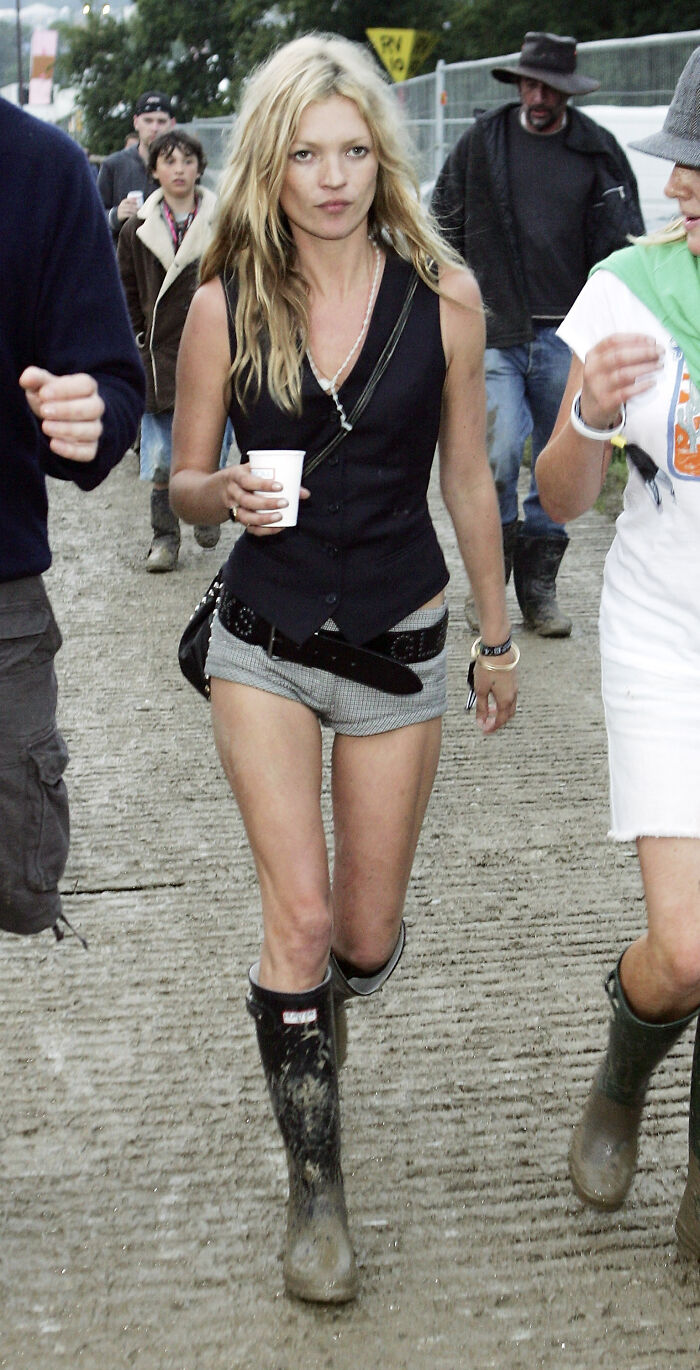
She explains that she was a model back then, at 5 feet 10 inches and 130 pounds, and was often “sent home for being fat.”
“What we are not going to do is body shame and say “oh, I’m y2k skinny”, because mama, you would not survive the 2,000’s,” she warns.
“Y2k skinny is a lot worse than you guys think it was,” Uli said, before closing with the fact that she used to have “nightmares every single night that Karl Laaagerfeld” was calling her fat.
“I could have spent my time loving life”: fellow Millennials offer tales of their own regret
Her video prompted netizens of a similar age to weigh in with their own horror stories of surviving the decade.
“Raise your hand if you have been victimized by y2k standards,” one person said.
Another noted that “The early 00s is the reason that every single millennial woman I know has body dysmorphia to this day.”
Most sounded similar alarms. The sentiment from Millennials was one of regret.
“Literally depresses me so much that I spent my hottest, slimmest years constantly being called fat and feeling fat, when I was a perfect weight. I could have spent that time loving life and building a healthy relationship with food, instead I got yo-yo dieting and insecurity,” one person lamented.
“I took a meat cleaver to my inner thigh”: Uli talks about her own body image issues
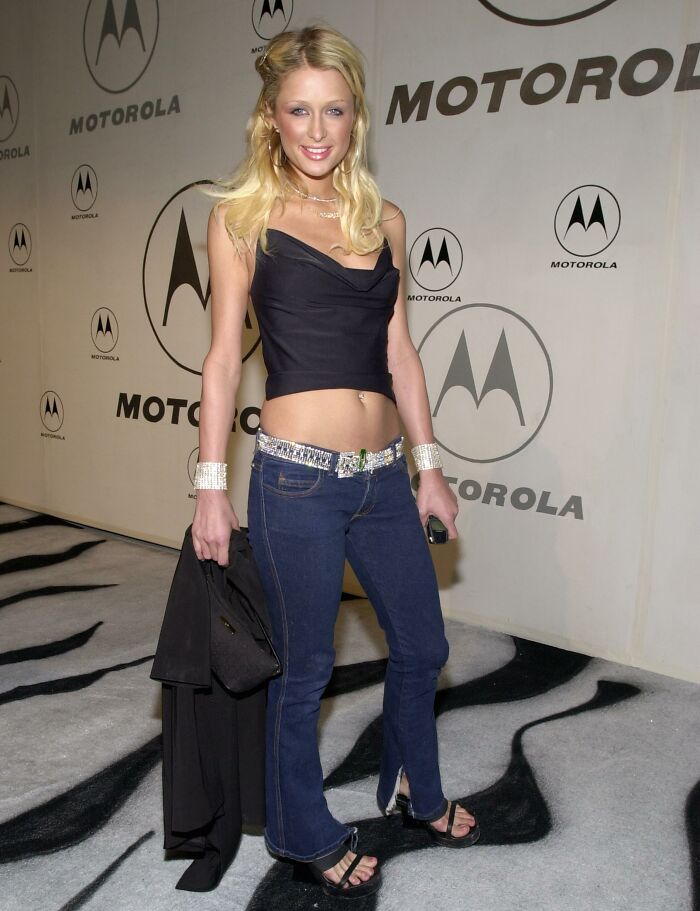
Image credits: Getty / Chris Weeks
Ana Beatriz Barros for Victoria’s Secret, 2002 pic.twitter.com/CMcTra5VL6
— Gia (@virgoessence) October 12, 2024
In an interview with Newsweek, Kaila Uli, who grew up in LA, said one of the most “brutal” aspects of Y2K were the body standards.
She told Newsweek that the “pressure to lose weight was constant.”
“I think there’s a misconception that being just a bit thinner than ‘normal’ is Y2K skinny. And, on one hand, I’m happy about that because it means we did a good job changing the body standards to be healthier,” she said of people’s misconceptions about how skinny people actually were back then.
@bobybraps♬ som original – monster_crazy – Monster Crazy
In the story she shared details of her life trying to make it in the modeling industry, and how ultimately, she ended up with two eating disorders.
“I started dieting at 14 once I saw photos of Jessica Simpson being called obese. There was a day where I took a meat cleaver and began trying to cleave my inner thigh fat off. I was unsuccessful because the knife was dull (thank God), but it triggered a spiral into dieting and eating disorders,” she confided.
“It’s a warning flare”: Experts say Millennial’s warning should be heeded
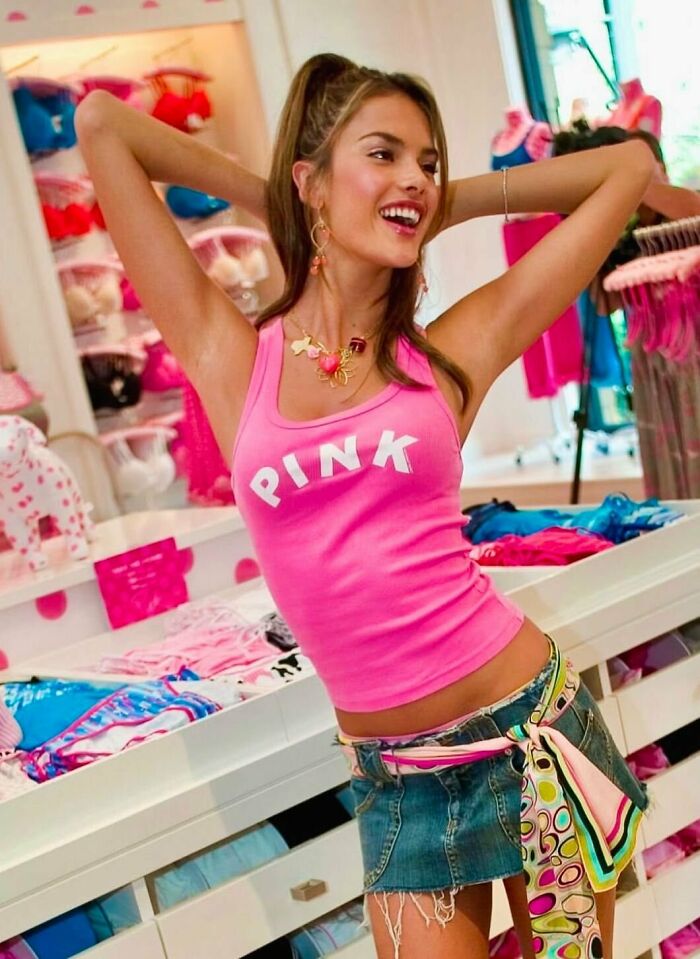
According to an article on the topic in the New York Post, Dr. Heidi Lescanec of Pink Zone frames the Y2K backlash not as an older generation criticising the younger one, but as survival wisdom:
“When millennial women speak now about Y2KSkinny, it’s not from superiority. It’s from survival. It’s a warning flare,” she says in the article.
Lescanec says Kate Moss’s infamous quote that “Nothing tastes as good as skinny feels” left deep emotional scars on Millennials who now see it as their duty to pass down the lessons they learned so mistakes can be avoided.
@tracymaigaakeep hating, I love myself💗♬ Shake It To The Max (FLY) – MOLIY & Silent Addy
@mekdelawitade Not 2025 skinny but 2000s skinny 💃 #2000s #2000sfashion #tall #tallgirl #vira #viralvideos #mekdelawitade #fypシ゚ #fyp @fordmodels @Models.com @Leslie Marrow Cheek ♬ Welcome back to the Victoria secret fashion show – ᴀɴɢᴇʟꜱ🪽
Experts say the trend can fuel anxiety, low self‑worth, and disordered eating, especially in such a genetically diverse and socioeconomically varied population, where being ultra-thin is biologically impossible for many.
Also quoted in the NY Post article is Stephen Buchwald of Manhattan Mental Health who says “seeing curated, unrealistic images of thinness on a daily basis can make people feel like they’re never ‘good enough.'”
While Gen Z is known for body‑positive rhetoric, critics argue that trends like “SkinnyTok” romanticize starvation as discipline. Slogans like “If your stomach is growling, pretend it’s applauding you” aside, the algorithmic culture amplifies dangerous messages under playful hashtags.
Millennials poured into the comments to share their own body image struggles


